Confira essas dicas e mande bem nos
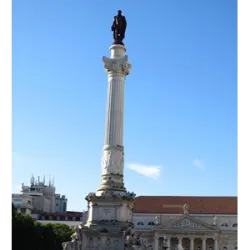 O centro de Lisboa, na Praça do Rossio, ergue-se uma coluna coroada pela estátua atribuída a D. Pedro IV. À primeira vista, trata-se de um símbolo claro do liberalismo português. No entanto, a história por trás da escultura é mais curiosa do que parece.
O centro de Lisboa, na Praça do Rossio, ergue-se uma coluna coroada pela estátua atribuída a D. Pedro IV. À primeira vista, trata-se de um símbolo claro do liberalismo português. No entanto, a história por trás da escultura é mais curiosa do que parece.Origem da estátua
Inaugurada em 1874
Oficialmente dedicada a D. Pedro IV
Fundida em bronze e colocada no topo de uma alta coluna
A lenda urbana
Há um mito persistente de que a estátua não representa D. Pedro IV
Acredita-se que a escultura teria sido reaproveitada de outra figura histórica
Para evitar questionamentos, foi colocada longe do olhar direto do público
Por que a dúvida existe
Os traços faciais não correspondem a retratos conhecidos do rei
A coroa e a postura não seguem padrões iconográficos portugueses
Falta documentação clara sobre a encomenda original
Simbolismo da coluna
O pedestal representa os valores do liberalismo
Figuras alegóricas simbolizam Justiça, Sabedoria, Força e Moderação
O que isso revela
Como lendas urbanas nascem de lacunas históricas
A forma como monumentos podem ser reinterpretados ao longo do tempo
 Hoje o zíper é um dos fechos mais usados do mundo, mas nem sempre foi assim. Durante décadas, ele foi rejeitado pela indústria da moda.
Hoje o zíper é um dos fechos mais usados do mundo, mas nem sempre foi assim. Durante décadas, ele foi rejeitado pela indústria da moda.Por que o zíper era considerado “grosseiro”?
Quando surgiu no final do século XIX, o zíper parecia industrial demais. Na época, roupas elegantes usavam botões, laços e amarrações, vistos como mais refinados. O mecanismo metálico do zíper era associado a máquinas, não à moda.
Resistência na moda
- Designers achavam o zíper feio
- Costureiras desconfiavam da durabilidade
- O público via o fecho como pouco sofisticado
Por isso, seu uso ficou limitado por muitos anos.
A virada com a indústria militar
Durante a Primeira Guerra Mundial, o cenário mudou.
O exército precisava de roupas rápidas de vestir, resistentes e práticas. O zíper se mostrou perfeito para:
- Uniformes
- Botas
- Jaquetas militares
A eficiência venceu o preconceito. Popularização definitiva
- Após a guerra, soldados levaram o hábito para a vida civil.
- Aos poucos, o zíper entrou na moda cotidiana e se tornou indispensável.
Curiosidade final
O nome francês “éclair” significa relâmpago, fazendo referência à velocidade do fecho.
 Criar visual sem ser designer
Criar visual sem ser designerGamma.app
Cria apresentações e sites profissionais em minutos.#N# Você só descreve a ideia. Ele monta tudo. Adeus PowerPoint.
Gemini (Google)#N# Geração de imagens com edição real.
Nada de “quase isso”. Ajuste, refine e finalize sem começar do zero.
Escrever melhor (e muito mais rápido)
Claude.ai
Texto com raciocínio humano.
Menos retrabalho, mais clareza e fluidez.
Wispr.ai
Fale, ele escreve.
Aprende com suas correções.
80 palavras/min → 200+.
Pesquisa e análise sem dor
NotebookLM (Google)
Envie PDFs, artigos e documentos.
Converse com o conteúdo como se alguém já tivesse lido tudo por você.
Grok
Respostas em tempo real conectadas ao X.
Ideal para tendências, contexto atual e breaking news.
Vídeo sem equipe de edição
Opus.pro
Transforma 1 vídeo longo em 20 cortes prontos para Reels e Shorts.
4 horas de edição → 4 minutos.
Granola.ai
Transcreve reuniões e gera notas realmente úteis.
Sem plugins invasivos, sem atrapalhar a call.
 A cerveja já foi mais segura que a água
A cerveja já foi mais segura que a águaNa Idade Média, a água muitas vezes estava contaminada, enquanto ferver o mosto da cerveja matava bactérias.
Crianças e adultos bebiam a “small beer” diariamente como bebida segura e nutritiva.
Isso mostra como a cerveja era parte essencial da dieta e da saúde pública da época.
Os Monges
Durante a Quaresma, monges produziam cervejas fortes e nutritivas.
A bebida era chamada de “pão líquido” e não quebrava o jejum.
Cerveja servia como fonte de energia e nutrientes durante períodos de restrição alimentar.
O lúpulo
Antes do uso do lúpulo, misturas de ervas chamadas gruit eram usadas para dar sabor e propriedades diferentes à cerveja.
Algumas dessas ervas tinham efeitos medicinais ou até alucinógenos.
Isso mostra como a cerveja tinha funções tanto recreativas quanto terapêuticas na história.
Mulheres dominaram a cerveja
As primeiras cervejeiras eram mulheres, chamadas de alewives.
O uso de caldeirões e chapéus altos deu origem a estereótipos associados a bruxas.
Isso revela a importância feminina na tradição cervejeira antes da industrialização.
Cervejas que sobreviveram a guerras
Durante guerras mundiais, receitas de cerveja eram escondidas para que não se perdessem.
Essas fórmulas secretas eram passadas de geração em geração.
 Ela se via primeiro como letrista
Ela se via primeiro como letristaAmy sempre se considerou uma escritora de emoções antes de ser cantora.
Suas letras eram quase sempre autobiográficas, descrevendo amor, dor e suas experiências pessoais.
A melodia vinha depois, como uma forma de dar vida às palavras que ela já havia escrito.
O visual foi uma armadura
O cabelo icônico, o delineado e as tatuagens tinham propósito além da estética.
Amy usava sua imagem exagerada para se proteger de inseguranças profundas.
Era uma forma de criar uma “barreira” diante do mundo.
Back to Black
O álbum mais famoso de Amy surgiu durante um período de intensa dor pessoal.
Ela gravou muitas músicas quase sem edição para capturar a emoção crua, tornando o disco uma janela direta para seu coração.
Cada faixa reflete experiências de perda, amor e sofrimento, como um diário musical.
Ela rejeitava o rótulo de ícone pop
Amy se inspirava muito mais em jazz, soul e blues do que no pop moderno.
O sucesso comercial nunca foi seu objetivo principal.
Ela buscava autenticidade musical, não fama passageira.
Sua maior luta era o silêncio
Mais do que drogas ou exposição pública, Amy enfrentava solidão e ansiedade extrema.
A música era uma forma de expressar o que palavras não conseguiam.
 Harry Potter
Harry Potter Acadêmico
Acadêmico Stranger Things
Stranger Things The Walking Dead
The Walking Dead Esportes
Esportes Cervejas
Cervejas Música
Música Games
Games Copa Libertadores
Copa Libertadores Cinema e TV
Cinema e TV Turismo
Turismo Copa Futebol Feminino
Copa Futebol Feminino MPB
MPB História
História Funk
Funk Hip Hop
Hip Hop Língua Inglesa
Língua Inglesa Basquetebol
Basquetebol Língua Portuguesa
Língua Portuguesa FortNite
FortNite Matemática
Matemática Olimpiadas
Olimpiadas Ginástica
Ginástica Jogos eletrônicos
Jogos eletrônicos KPOP
KPOP Barbie
Barbie Tênis
Tênis Surf
Surf Natação
Natação Ciências Naturais
Ciências Naturais Turismo América do Sul
Turismo América do Sul Animações
Animações Jogos de tabuleiro
Jogos de tabuleiro Séries de TV
Séries de TV Cinema
Cinema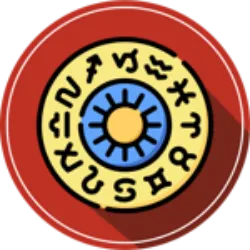 Astrologia
Astrologia MineCraft
MineCraft MarioBros
MarioBros Voleibol
Voleibol Turismo Europa
Turismo Europa Música Pop
Música Pop Roblox
Roblox Atletismo
Atletismo Geografia
Geografia RPG
RPG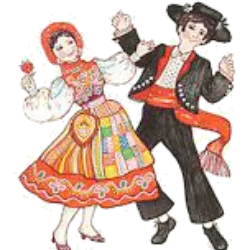 Folclore Português
Folclore Português Futebol
Futebol Jogos de carta
Jogos de carta Sertanejo
Sertanejo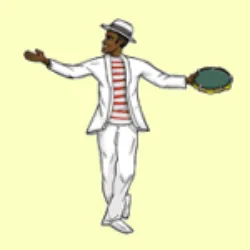 Samba & Pagode
Samba & Pagode Forró
Forró Turismo América do Norte
Turismo América do Norte Portugal
Portugal Físico-Química
Físico-Química Rock n Roll
Rock n Roll Novelas brasileiras
Novelas brasileiras Turismo no Chile
Turismo no Chile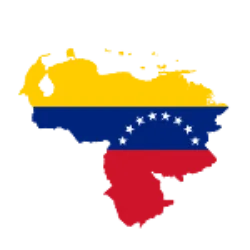 Turismo na Venezuela
Turismo na Venezuela Vinhos Portugueses
Vinhos Portugueses Brasileirão
Brasileirão Turismo na Colombia
Turismo na Colombia Futebol Brasileiro
Futebol Brasileiro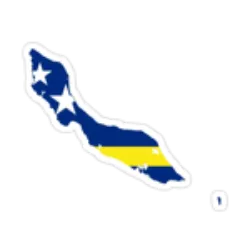 Turismo em Curaçau
Turismo em Curaçau Turismo no Reino Unido
Turismo no Reino Unido Turismo no Canadá
Turismo no Canadá Guiana Francesa
Guiana Francesa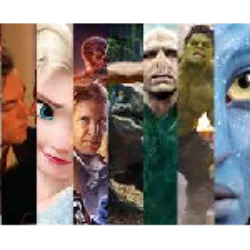 BlockBusters
BlockBusters Anime
Anime Yoga
Yoga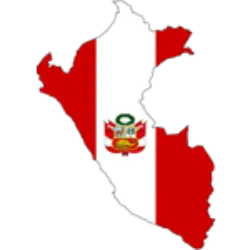 Turismo no Peru
Turismo no Peru Turismo no Suriname
Turismo no Suriname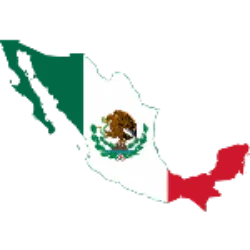 Turismo no México
Turismo no México Turismo na Argentina
Turismo na Argentina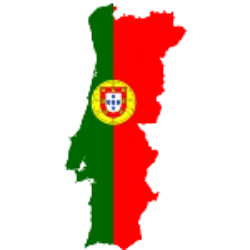 Turismo em Portugal
Turismo em Portugal NBA
NBA Variedades
Variedades Futebol Espanhol
Futebol Espanhol Turismo em Guiana
Turismo em Guiana Turismo em Aruba
Turismo em Aruba Turismo Estados Unidos
Turismo Estados Unidos Turismo Ilhas Malvinas
Turismo Ilhas Malvinas Desenhos Animados
Desenhos Animados Futebol Português
Futebol Português Turismo no Paraguai
Turismo no Paraguai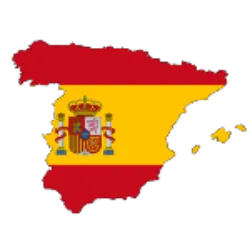 Turismo na Espanha
Turismo na Espanha Turismo no Brasil
Turismo no Brasil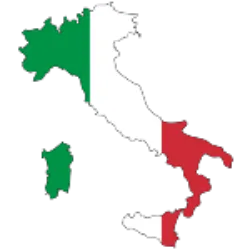 Turismo na Itália
Turismo na Itália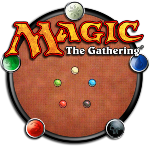 Magic the Gathering
Magic the Gathering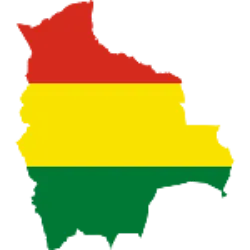 Turismo na Bolívia
Turismo na Bolívia Turismo na França
Turismo na França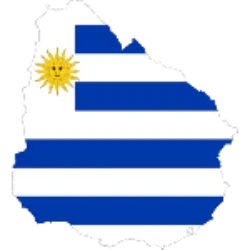 Uruguai
Uruguai Turismo em Bonaire
Turismo em Bonaire Marvel
Marvel Piadas de Loiras
Piadas de Loiras Festa de São João
Festa de São João Chaves & Chapolin
Chaves & Chapolin Literatura
Literatura Friends
FriendsSabia que hoje é dia de..
 21 de janeiro, dia dos Cônjuges, uma data especial para reconhecer e celebrar a importância do casamento e da parceria conjugal. A data homenageia a união e o compromisso entre casais, destacando o valor do amor, respeito, companheirismo e apoio mútuo no relacionamento.
21 de janeiro, dia dos Cônjuges, uma data especial para reconhecer e celebrar a importância do casamento e da parceria conjugal. A data homenageia a união e o compromisso entre casais, destacando o valor do amor, respeito, companheirismo e apoio mútuo no relacionamento.O Dia Nacional dos Cônjuges é uma oportunidade para que casais reflitam sobre a força da sua relação, reafirmem seu compromisso e celebrem os momentos compartilhados. Essa data serve como um lembrete da importância de cultivar a parceria e a amizade dentro do casamento, reforçando os laços que tornam a convivência mais rica e significativa.
A comemoração pode envolver gestos simples, como um jantar romântico, uma mensagem de carinho ou um presente especial, criando momentos de conexão e apreciação no relacionamento. Em um mundo tão agitado, o Dia Nacional dos Cônjuges oferece um momento para pausar e valorizar a parceria que sustenta muitas famílias e relacionamentos ao redor do mundo.
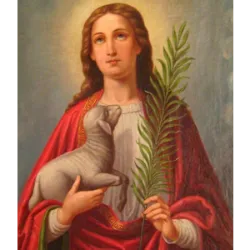 21 de janeiro dia de Santa Inês, em homenagem a uma das santas mais veneradas da Igreja Católica. Santa Inês foi uma jovem mártir cristã que viveu no século III, em Roma. Ela é conhecida por sua pureza de fé e coragem diante das perseguições aos cristãos durante o império de Diocleciano.
21 de janeiro dia de Santa Inês, em homenagem a uma das santas mais veneradas da Igreja Católica. Santa Inês foi uma jovem mártir cristã que viveu no século III, em Roma. Ela é conhecida por sua pureza de fé e coragem diante das perseguições aos cristãos durante o império de Diocleciano.Santa Inês foi uma das primeiras cristãs a ser martirizada por sua fé, aos 12 ou 13 anos, recusando-se a abandonar sua crença, apesar das ameaças e torturas. Sua história de fé e resistência tornou-se um exemplo de devoção, e ela passou a ser reconhecida como santa pela Igreja Católica. Inês é muitas vezes representada com um cordeiro, símbolo de sua pureza, e seu nome está relacionado à palavra "agnus", que significa "cordeiro" em latim.
O Dia de Santa Inês é comemorado com missas e celebrações em sua honra, especialmente em Roma, onde ela é uma figura central na tradição religiosa. Além disso, em algumas regiões, a data é marcada por bênçãos de ovelhas, como uma forma simbólica de evocar a pureza e o sacrifício de Santa Inês. A celebração é uma oportunidade para refletir sobre o valor da pureza espiritual e da coragem para enfrentar desafios em nome da fé.
 21 de janeiro dia de Apreciação do Esquilo, uma data dedicada a esses pequenos roedores que, embora muitas vezes sejam vistos como simples habitantes urbanos ou rurais, desempenham um papel crucial nos ecossistemas. O dia é uma oportunidade para reconhecer a importância dos esquilos na natureza, bem como para promover a conscientização sobre a preservação de suas espécies.
21 de janeiro dia de Apreciação do Esquilo, uma data dedicada a esses pequenos roedores que, embora muitas vezes sejam vistos como simples habitantes urbanos ou rurais, desempenham um papel crucial nos ecossistemas. O dia é uma oportunidade para reconhecer a importância dos esquilos na natureza, bem como para promover a conscientização sobre a preservação de suas espécies.Os esquilos são conhecidos por sua agilidade, inteligência e habilidade de armazenar alimentos para o inverno. Além disso, são essenciais para a dispersão de sementes, ajudando na regeneração das plantas e na manutenção da biodiversidade. Sua presença nas áreas urbanas também contribui para o equilíbrio ecológico, ao controlar populações de insetos e pequenas plantas.
Embora o Dia Nacional de Apreciação do Esquilo seja mais popular nos Estados Unidos, a data ganhou uma crescente atenção em outros países, com atividades educativas, eventos ao ar livre e campanhas de sensibilização sobre a proteção desses animais. Em algumas regiões, o dia é marcado por observações de esquilos na natureza, além de ações para promover a preservação de habitats naturais e a convivência pacífica com a fauna local.
 21 de janeiro dia do Abraço, promovendo a importância deste gesto simples e universal que transmite carinho, apoio e união. A data foi criada em 1986 por Kevin Zaborney, um norte-americano que desejava incentivar as pessoas a expressarem afeto de maneira mais aberta e sincera.
21 de janeiro dia do Abraço, promovendo a importância deste gesto simples e universal que transmite carinho, apoio e união. A data foi criada em 1986 por Kevin Zaborney, um norte-americano que desejava incentivar as pessoas a expressarem afeto de maneira mais aberta e sincera.Zaborney escolheu 21 de janeiro para a celebração por ser um período entre as festas de fim de ano e o Dia dos Namorados nos Estados Unidos, épocas em que as pessoas costumam se sentir mais vulneráveis ou solitárias. O objetivo era combater o isolamento emocional e lembrar os benefícios de um abraço caloroso.
No Dia Internacional do Abraço, pessoas ao redor do mundo se dedicam a espalhar afeto, seja entre amigos, familiares ou até mesmo desconhecidos. Em algumas cidades, são organizados eventos de "abraços grátis", em que voluntários distribuem abraços para quem quiser participar.
Confira outras curiosidades e desafios de quiz

O apocalipse
Muita gente passa a série inteira tentando descobrir a origem do vírus, mas Robert Kirkman, criador da série, deixou claro: isso não importa. O foco é humano, como as pessoas se comportam quando a sociedade desaparece, quando não existem leis, conforto ou segurança. O vírus é só o catalisador que revela o que cada um é de verdade.
A infecção
A famosa revelação de que qualquer um se tornaria zumbi após morrer foi planejada desde a primeira temporada. Isso muda completamente a percepção sobre mortes: mesmo mortes “naturais” ou acidentais têm impacto, porque a transformação é inevitável. A ameaça não está só nos mortos-vivos, mas na realidade de que ninguém está realmente seguro.
Rick poderia ter morrido cedo
Nos quadrinhos e nos planos iniciais da série, Rick Grimes não era destinado a sobreviver tanto tempo. Sua sobrevivência prolongou arcos de personagens como Daryl, Michonne e Carl.
Zumbis
Na 1ª temporada, zumbis eram mais inteligentes, mas isso foi cortado para mostrar que o verdadeiro perigo vem dos humanos, não dos mortos-vivos. A série mostra que, em um mundo sem regras as pessoas são mais ameaçadores que os mortos-vivos.
O final
A série mostra que sobreviver não basta; importa o impacto que deixamos e o mundo que ajudamos a reconstruir.

Eleven quase foi um menino
Nos primeiros rascunhos dos irmãos Duffer, a personagem principal teria outro gênero. Ao transformá-la em uma menina, a série ganhou uma camada emocional mais forte: fragilidade aparente versus poder extremo, além de temas como maternidade, amizade e identidade.
O Mundo Invertido veio antes da história
Diferente do comum, os criadores pensaram primeiro no universo: regras físicas, clima, criaturas e limites do Upside Down. Isso fez com que tudo parecesse mais real e consistente ao longo das temporadas.
Hawkins é uma cidade fictícia
Embora pareça uma típica cidade americana dos anos 80, Hawkins não existe. As gravações ocorreram na Geórgia, escolhida por sua estética urbana e florestas que combinavam com o tom misterioso da série.
O Demogorgon quase foi abstrato
A criatura foi inspirada em tubarões e plantas carnívoras, com a ideia inicial de ser algo menos humano e mais estranho. A versão final ganhou um visual mais “monstruoso” para causar maior impacto visual e medo.
Inspiração em experimentos reais
O Laboratório de Hawkins tem base no Projeto MKUltra, um programa real da CIA que investigava controle mental usando métodos controversos. Isso torna a série ainda mais perturbadora por misturar ficção com fatos históricos.
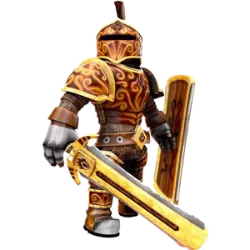
1. Um universo feito por jogadores
Desde 2006, Roblox permite que qualquer pessoa crie e jogue mundos únicos. São milhares de games feitos pela comunidade, de aventuras épicas a simulações malucas.
2. Uma comunidade bilionária
Alguns criadores ganharam milhões com seus jogos, transformando diversão em negócio. A economia do Roblox é real e muito ativa.
3. Eventos que prendem
Atualizações constantes e eventos temáticos adicionam histórias e desafios, mantendo os jogadores engajados por anos.
4. Crianças e adolescentes adoram
Mais de 50% da base de jogadores tem menos de 16 anos. A plataforma combina criatividade, competição e socialização de forma irresistível.
5. O legado de David Baszucki
Criador do Roblox, David transformou uma ideia simples em uma das maiores plataformas de jogos do mundo, inspirando milhões a criar e inovar.

Juan Pujol García (1912–1988), codinome Garbo, foi o espião que enganou Hitler sozinho. Criou uma rede fictícia de 27 agentes que nunca existiram, enviando relatórios detalhados com erros propositalmente humanos. A astúcia dele mudou o curso da guerra.
Quem foi
• Espanhol, infância comum
• Inicialmente desinteressado em política
• Ofereceu seus serviços aos britânicos e depois enganou os nazistas
Como enganou os nazistas
• Criou 27 agentes fictícios na Europa
• Enviava relatórios convincentes, com erros estratégicos
• Ganhou a confiança total do Alto Comando Alemão
• Manipulava informações de forma sutil e criativa
Contribuição para o Dia D
• Convencido pelos relatórios de Pujol, Hitler posicionou tropas no lugar errado
• Facilitou o desembarque aliado na Normandia com menos resistência
Depois da guerra
• Sobreviveu e manteve segredo sobre sua rede
• Recebeu condecorações britânicas e espanholas
• É lembrado como o espião que venceu Hitler sem disparar um tiro
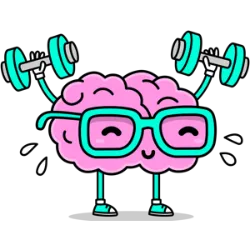
Você já estudou algo e, horas depois, percebeu que quase nada ficou na memória? O problema não é preguiça, é como o cérebro processa informação. A maioria dos métodos convencionais foca em quantidade, não em qualidade do processamento cognitivo.
O truque psicológico para aprender mais rápido é transformar qualquer informação em experiência ativa. Ou seja, não basta ler, ouvir ou assistir — é preciso interagir, questionar e aplicar.
Funciona em três etapas: 1) Ativação: transforme cada informação em pergunta prática, como “Como aplico isso no dia a dia?” ou “Que problema resolve?”. Isso cria conexões duradouras com o que você já sabe. 2) Consolidação: explique ou ensine o conteúdo em voz alta, mesmo que só para você. Estudos mostram que ensinar aumenta a retenção em até 90%. 3) Aplicação + pausas conscientes: após cada bloco de estudo (15–25 min), faça micro-pauses de 2–5 minutos, respirando ou observando o ambiente. Esse intervalo ajuda o cérebro a consolidar informações e reduzir estresse cognitivo.
Durante o processo, o cérebro reorganiza memórias, fortalece conexões neurais e transforma informação em conhecimento aplicável. Diferente de dicas genéricas de “faça resumos” ou “use mapas mentais”, esse método explica como e por que funciona, permitindo aprender mais rápido e aplicar de forma prática, sem técnicas complexas.

Se você sente que não consegue se concentrar, não é falta de força de vontade. O cérebro moderno está sobrecarregado: notificações, redes sociais e excesso de informação mantêm a mente em modo “alerta constante”, drenando energia e atenção. A multitarefa e a sobrecarga cognitiva aumentam o estresse, prejudicam a memória de trabalho e tornam qualquer tarefa complexa mais difícil.
A boa notícia é que existe um reset mental de apenas 5 minutos que realmente funciona. Ele não força a concentração, mas cria condições para que o cérebro se reorganize. Funciona em três etapas: 1) Desconexão total (1 min): afaste-se de telas e interrupções; 2) Respiração consciente (2 min): inspire 4s, segure 2s, expire 6s; 3) Atenção plena no presente (2 min): observe sons, sensações do corpo e postura, sem tentar “esvaziar a mente”.
Durante esses minutos, o córtex pré-frontal e o cingulado anterior se reorganizam, reduzindo o cortisol e restaurando foco e clareza. Diferente das dicas genéricas de “faça pausas”, este método explica como e por que funciona, tornando o aprendizado imediato e prático. Estudos comprovam que micro-pauses conscientes são mais eficientes que longos descansos passivos, permitindo aplicar o reset várias vezes ao dia para melhorar produtividade e bem-estar.
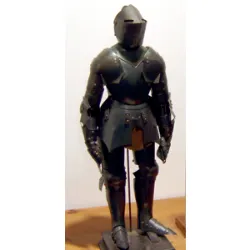
Leonardo da Vinci não era apenas pintor e inventor: ele também criou alguns dos primeiros robôs da história. Entre suas engenhocas, destaca-se um cavaleiro mecânico capaz de se sentar, mover braços, levantar a viseira do capacete e até bater o peito
.
Autômatos de Leonardo: Projetados com engrenagens, polias e cordas, antecipavam conceitos de robótica moderna.
Movimentos surpreendentes: O cavaleiro podia executar gestos humanos realistas, mostrando como Leonardo entendia anatomia e mecânica ao mesmo tempo.
Função prática: Alguns autômatos eram estudos para teatro ou demonstrações militares, mas também serviam como experimentos de engenharia avançada.
Legado: Esses robôs foram precursores de máquinas automatizadas, influenciando séculos depois a robótica industrial e os androides modernos.
Leonardo imaginou o futuro da tecnologia que só seria concretizado mais de 400 anos depois, mostrando que a criatividade humana sempre esteve à frente do seu tempo.
Esses inventos provam que a ideia de máquinas que imitam humanos não nasceu na era digital — começou no Renascimento, com engenhocas mecânicas que eram verdadeiros robôs analógicos.

O Agente Secreto acompanha Marcelo, um professor universitário e especialista em tecnologia que retorna à sua cidade natal. Sua volta desperta o interesse de forças ligadas ao poder político e econômico, colocando-o sob vigilância constante. Diante das ameaças, ele luta para proteger o filho, preservar seus vínculos afetivos e sobreviver em um ambiente dominado pelo medo e pelo silêncio.
Temas Principais
Autoritarismo e repressão
Vigilância e controle
Memória coletiva
Trauma político
Resistência e solidariedade
Narrativa
A história se desenvolve em espaços urbanos marcados pela memória e pela tensão. Marcelo encontra apoio em personagens marginalizados e dissidentes, formando uma rede silenciosa de proteção e resistência.
Estilo e Atmosfera
Fotografia sombria e claustrofóbica
Direção de arte detalhista
Clima constante de suspense e paranoia
Importância
Mais do que um retrato de época, O Agente Secreto é uma obra atemporal, que reflete sobre os efeitos da violência política, a fragilidade da liberdade e a necessidade de preservar a memória diante de regimes opressivos.

O costume de fazer “tim-tim” ao brindar com taças e bebidas é uma tradição antiga que mistura história, superstição e simbolismo social. Esse gesto é comum em celebrações como casamentos, aniversários e conquistas importantes.
Origem do “tim-tim” com taças
O hábito surgiu na Europa medieval, quando as pessoas acreditavam que o som das taças ajudava a:
Afastar maus espíritos
Demonstrar confiança entre os participantes
Evitar envenenamentos, já que o líquido podia se misturar levemente
Significado do som das taças
O som do brinde tem um papel simbólico:
Marca o início da celebração
Representa união e harmonia
Substitui antigos rituais religiosos ou de proteção
Por que brindamos olhando nos olhos?
Em muitas culturas, o brinde correto envolve:
Olhar nos olhos da outra pessoa
Não cruzar os braços ou as taças
Isso simboliza respeito, sinceridade e boas intenções.#
O “tim-tim” nos dias atuais
Hoje, o “tim-tim” é principalmente um gesto de:
Celebração
Amizade
Conexão social
Mesmo sem o significado original, o costume permanece como um ritual cultural transmitido entre gerações.
Curiosidade
Em alguns países europeus, acredita-se que brindar sem olhar nos olhos dá azar no amor, uma superstição popular que reforça a importância do gesto.

As praias do Rio de Janeiro são famosas mundialmente por sua beleza, areia branca e mar vibrante. Entre os atrativos, a prática de banho de mar e esportes aquáticos é muito comum, mas é essencial entender os riscos da ressaca.
O que é a ressaca e como se forma
A ressaca é um movimento intenso do mar que ocorre quando ondas fortes vindas do oceano aberto encontram a costa. Isso provoca correntes rápidas, ondas altas e movimentação intensa da água, podendo arrastar banhistas mar adentro. Ela é mais comum em dias de ventos fortes ou frente de tempestades no oceano.
Como evitar acidentes na ressaca
Observar a bandeira da praia: vermelha indica perigo.
Evitar nadar sozinho ou em locais sem salva-vidas.
Manter-se próximo à faixa de areia se não houver prática segura de natação.
Prestar atenção às orientações dos guarda-vidas e sinalizações.
O que fazer se for pego pela ressaca
Não nadar contra a corrente: ela é muito mais forte que o esforço humano.
Nadar paralelamente à praia até sair da correnteza.
Levantar os braços e chamar ajuda, mantendo a calma.
Se cansar, flutuar de costas até recuperar energia.

O Pico Paraná, com 1.877 metros, é o ponto mais alto do Sul do Brasil e está localizado na Serra do Mar, entre os municípios de Antonina e Campina Grande do Sul, no Paraná. Sua formação geológica remonta ao período pré-cambriano, há milhões de anos, quando processos de levantamento tectônico e erosão deram origem a suas rochas ígneas e graníticas. O nome “Paraná” vem do tupi e significa “semelhante a um mar”, referência aos rios largos e à imensidão de vegetação que rodeia a região.
Por que a trilha pode ser perigosa
Terreno acidentado: pedras soltas e trechos íngremes aumentam o risco de escorregões.
Mudanças climáticas rápidas: neblina, chuva ou vento podem dificultar a subida.
Falta de preparo físico: o percurso longo exige resistência e boa condição física.
Sinalização limitada: sem guia ou mapa atualizado, é fácil se perder.
Como se prevenir:
Contratar guia experiente: segurança e conhecimento do terreno.
Usar equipamentos adequados: botas de trekking, bastões e roupas impermeáveis.
Planejar a subida: levar água, alimentos e kit de primeiros socorros.
Checar a previsão do tempo: evitar escaladas com chuva ou neblina.
Respeitar seus limites: pausas ajudam a evitar fadiga e acidentes.

A salga é uma técnica milenar usada para conservar carnes e peixes antes da refrigeração. O sal reduz a umidade do alimento, impedindo a proliferação de bactérias.
Como funciona:
O sal atua por osmose, retirando a água dos tecidos do alimento e criando um ambiente desfavorável aos microrganismos.
Origem histórica:
Utilizada por egípcios, romanos e povos asiáticos, a salga foi essencial para viagens, guerras e períodos de escassez. O sal chegou a ter valor econômico comparável ao ouro.
Exemplos famosos:
Bacalhau salgado (Portugal)
Charque e carne-seca (Brasil)
Anchovas salgadas (Itália)
Receita tradicional – Carne-seca simples
Ingredientes:
1 kg de carne bovina (patinho ou coxão duro)
Sal grosso
Modo de preparo
Corte a carne em tiras grossas e cubra totalmente com sal grosso. Coloque em um recipiente, cubra e deixe descansar por 24 horas na geladeira.
Escorra o líquido, pendure ou deixe em local ventilado por 2 a 3 dias para secar.
Antes de consumir, dessalgue em água por algumas horas.

O escabeche de peixe é um prato antigo, conhecido pelo sabor marcante e pela excelente conservação dos alimentos. Muito popular em Portugal, Espanha e no Brasil, ele atravessou séculos e culturas.
História e Origem
A palavra escabeche vem do árabe al-sikbaj, um método de conservar carnes e peixes em vinagre e especiarias. A técnica foi difundida na Península Ibérica durante a ocupação árabe e, mais tarde, levada para a América pelos colonizadores portugueses e espanhóis.
Antes da refrigeração, o escabeche era essencial para preservar o peixe por mais tempo, mantendo sabor e segurança alimentar.
Escabeche no Brasil
No Brasil, o escabeche ganhou adaptações regionais, sendo muito comum com sardinha, pescada ou cavalinha, servido frio ou em temperatura ambiente, ideal para dias quentes.
Receita Tradicional de Escabeche de Peixe
Ingredientes:
1 kg de peixe em postas
2 cebolas em rodelas
3 dentes de alho
1/2 xícara de vinagre
1/2 xícara de azeite
1 tomate fatiado
Sal, pimenta e louro a gosto
Modo de preparo:
Tempere o peixe com sal e pimenta, frite levemente e reserve. Refogue a cebola, o alho e o tomate no azeite, acrescente o vinagre e o louro. Monte em camadas com o peixe e deixe apurar. Sirva após esfriar.
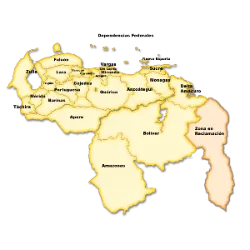
Interesse dos Estados Unidos na Venezuela: Entenda os Motivos
O interesse dos Estados Unidos na Venezuela é antigo e está ligado a fatores estratégicos, econômicos e geopolíticos que permanecem relevantes ao longo do tempo.
Petróleo e recursos naturais
A Venezuela possui uma das maiores reservas de petróleo do mundo. Historicamente, os EUA buscam garantir acesso seguro a fontes de energia estratégicas, reduzindo riscos de dependência externa.
Estabilidade e segurança regional
A instabilidade política e econômica venezuelana afeta toda a América Latina, gerando crises migratórias e tensões regionais. Para os EUA, a estabilidade no hemisfério ocidental é vista como essencial para sua própria segurança.
Influência geopolítica
A aproximação da Venezuela com países como Rússia, China e Irã desperta atenção dos Estados Unidos, que tradicionalmente procuram limitar a influência de potências rivais na região.
Democracia e direitos humanos
O discurso norte-americano destaca a defesa da democracia, eleições livres e direitos humanos, frequentemente citando a situação venezuelana como motivo de preocupação.
Economia e comércio
Antes da crise, a Venezuela era um parceiro comercial relevante. Um cenário de estabilidade poderia reabrir oportunidades econômicas e investimentos.
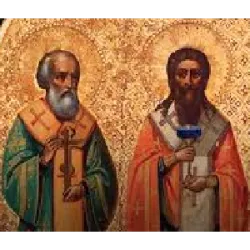
2 de janeiro dia de São Basílio Magno e São Gregório de Nazianzeno dois dos maiores pensadores do cristianismo do século IV e figuras centrais da Igreja primitiva. Amigos próximos e bispos, eles ficaram conhecidos como Padres Capadócios, por sua atuação na região da Capadócia, na atual Turquia.
São Basílio Magno(330–379)
Basílio foi bispo de Cesareia e destacou-se pela defesa da fé cristã contra heresias, especialmente o arianismo. É considerado um dos fundadores do monaquismo cristão, criando regras que influenciam a vida monástica até hoje. Também foi um grande defensor dos pobres, criando hospitais e obras de caridade, conhecidas como Basiliades.
São Gregório de Nazianzeno(329–390)
Gregório foi um dos maiores teólogos da Igreja e recebeu o título de “Teólogo” por sua profundidade intelectual. Atuou como arcebispo de Constantinopla e teve papel decisivo na formulação da doutrina da Santíssima Trindade, sendo fundamental no Concílio de Constantinopla (381).
Legado em comum
Juntos, Basílio e Gregório ajudaram a consolidar a teologia cristã, unindo fé, razão e ação social. Seus escritos continuam sendo referência para católicos e ortodoxos, influenciando a espiritualidade cristã há mais de 1.600 anos.

Vila Nova de Paiva afirma-se como um destino de referência para os apreciadores da gastronomia tradicional portuguesa, com especial destaque para os pratos que valorizam a carne de caça e o peixe dos seus rios. A cozinha local alia ingredientes endógenos a saberes antigos, resultando em sabores únicos que refletem a identidade cultural da região.
Entre os pratos mais emblemáticos está o coelho guisado com carqueja, uma erva aromática típica das serras beirãs, que confere um aroma especial à carne. O javali e o carneiro ensopado também têm lugar de honra nas mesas locais, realçando a forte tradição cinegética do concelho.
No capítulo do peixe, a truta com molho de escabeche, proveniente das águas frias e límpidas do Rio Paiva, é uma iguaria de eleição. A caldeirada de cabrito, rica em sabores e tradição, completa a oferta de pratos principais, revelando a influência pastoril das freguesias do concelho.
A freguesia de Pendilhe ganha destaque pela produção artesanal de defumados, como o salpicão, apreciado pela sua textura e sabor intenso. Esta gastronomia autêntica e enraizada promete uma verdadeira viagem sensorial pela alma das Terras do Demo.

O Magusto é uma festividade entre outubro e novembro, associada a datas como o Dia de São Simão, Todos os Santos e São Martinho. É celebrado em torno de fogueiras, assando castanhas com jeropiga, água-pé ou vinho novo. Os corajosos pulam a fogueira, e "enfarruscar" com cinzas faz parte da tradição. Apesar da chuva no outono, o "verão de São Martinho" traz sol. A lenda de São Martinho, relacionada a um dia chuvoso, explica esse fenômeno. Uma tradição específica, o "Magusto da Velha", ocorre em Aldeia de Viçosa em 26 de dezembro, homenageando uma velha rica com lançamento de castanhas do campanário e orações. O evento em Barqueiros, Mesão Frio, conecta o magusto a rituais antigos em homenagem aos mortos.

Os Chapéus de Palha, o grupo de piratas liderado por Luffy, recebeu esse nome devido ao chapéu de palha que Luffy sempre usa. Cada membro do grupo tem um objetivo pessoal em sua jornada. O mundo de One Piece é habitado por uma grande variedade de personagens, incluindo humanos, criaturas marinhas, animais antropomórficos e até mesmo gigantes.
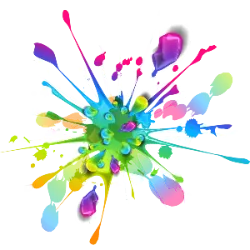
Os compostos complexos de metais de transição vêm chamando atenção na área da química por causa de suas estruturas variadas e de suas cores intensas. Esses materiais são formados quando um metal de transição se liga a diferentes moléculas ou íons chamados ligantes, criando arranjos geométricos como formas octaédricas, tetraédricas ou quadrado-planares. Cada tipo de geometria influencia diretamente o comportamento químico do complexo.
Um dos aspectos mais fascinantes é a origem das cores, que surge das transições de elétrons entre diferentes níveis de energia presentes nos orbitais do metal. Quando a luz incide sobre o complexo, parte dela é absorvida e parte é refletida; a cor percebida depende justamente dessa diferença energética entre os orbitais, que varia conforme o metal e os ligantes envolvidos.
Além de seu interesse visual, esses compostos desempenham papel importante em diversas áreas práticas. Eles podem atuar em processos catalíticos, em materiais utilizados em sensores e em sistemas que dependem de propriedades ópticas específicas. Compreender sua estrutura e suas características é essencial para desenvolver aplicações mais eficientes e ampliar o uso desses materiais no cotidiano científico e tecnológico.

O duelo entre Flamengo e Palmeiras ganhou um peso único na Libertadores nos últimos anos, transformando-se em um encontro que simboliza o auge do futebol sul-americano. De um lado, o Flamengo chega com seu estilo ofensivo, elenco estrelado e uma torcida que trata cada decisão como destino. Do outro, o Palmeiras representa a consistência competitiva, a força tática e a experiência acumulada em campanhas recentes. A final em Lima adiciona ainda mais charme à disputa. Foi lá que o Flamengo viveu uma de suas noites mais históricas, e agora reencontrar o palco reacende memórias e expectativas. Para o Palmeiras, a chance de vencer em um cenário emblemático cria um novo capítulo para um clube que se acostumou a decidir. Mais do que um simples confronto, Flamengo x Palmeiras virou sinônimo de era dourada da competição: duas potências, dois estilos e um troféu que parece sempre passar por eles. Cada encontro se torna um retrato do futebol brasileiro no seu mais alto nível.

O yoga se destaca não apenas como prática física, mas como um estilo de vida completo, integrando alimentação consciente, sono adequado e hábitos saudáveis. Mais do que exercícios, suas técnicas promovem atenção plena, autocuidado e equilíbrio emocional, trazendo bem-estar integral no dia a dia moderno.
Yoga para todos
A prática pode ser adaptada para diferentes públicos, incluindo crianças, idosos, gestantes e pessoas com deficiência. Posturas, respiração e meditação podem ser ajustadas conforme o nível de cada praticante, garantindo segurança e benefícios efetivos.
Benefícios comprovados
Estudos científicos comprovam que o yoga:
Reduz estresse
Melhora a postura
Aumenta a flexibilidade
Contribui para o equilíbrio emocional
Além disso, a prática regular promove consciência corporal, força e estabilidade, sendo uma ferramenta eficaz para lidar com a rotina agitada e os desafios do estilo de vida moderno.
Corpo, mente e hábitos saudáveis
O yoga une corpo, mente e hábitos saudáveis, mostrando que cuidar de si vai além do físico e se reflete em qualidade de vida e bem-estar integral.

O concelho de Oeiras, conhecido pelas suas praias, falésias e património histórico, tornou-se recentemente cenário de destaque para a televisão portuguesa. A série “O Grito”, dirigida por Leonel Vieira e protagonizada por Daniela Ruah e Sara Matos, foi totalmente filmada em Oeiras, transformando locais familiares em cenários de suspense e mistério.
Entre os espaços utilizados estão o Parque dos Poetas, com as suas esculturas e trilhos tranquilos; o Passeio Marítimo de Algés, que oferece vistas deslumbrantes sobre o rio Tejo; e a Praia da Torre, que combina a força das ondas com a serenidade de pequenas enseadas. Cada local foi cuidadosamente escolhido para refletir a atmosfera intensa da narrativa, mostrando Oeiras de uma forma inédita para muitos moradores e visitantes.
Para além do entretenimento, a série destaca o potencial do concelho como cenário cinematográfico versátil, capaz de acomodar produções de grande qualidade. A presença de “O Grito” evidencia que, entre história, cultura e natureza, Oeiras também é palco de histórias contadas pelo cinema e pela televisão.

A Terra é composta por várias camadas que se diferenciam por composição, temperatura e propriedades físicas. No núcleo, localizado no centro do planeta, encontramos duas partes: o núcleo interno, sólido, formado principalmente por ferro e níquel, e o núcleo externo, líquido, responsável pela geração do campo magnético terrestre. Acima do núcleo está o manto, uma camada espessa de rochas quentes e semissólidas que se movimentam lentamente, provocando fenômenos como vulcões e terremotos. A parte mais externa é a crosta, fina e rígida, onde vivemos; ela se divide em crosta continental, mais espessa e composta por granitos, e crosta oceânica, mais fina e formada por basalto. Entre a crosta e o manto existe a astenosfera, uma região parcialmente derretida que permite o deslocamento das placas tectônicas. Essas camadas interagem constantemente, moldando a superfície do planeta, formando montanhas, vales, vulcões e oceanos. O estudo da estrutura da Terra é essencial para entender fenômenos naturais, explorar recursos minerais e avaliar riscos geológicos. Assim, o planeta revela uma dinâmica interna contínua que sustenta a vida e transforma a paisagem ao longo do tempo.
